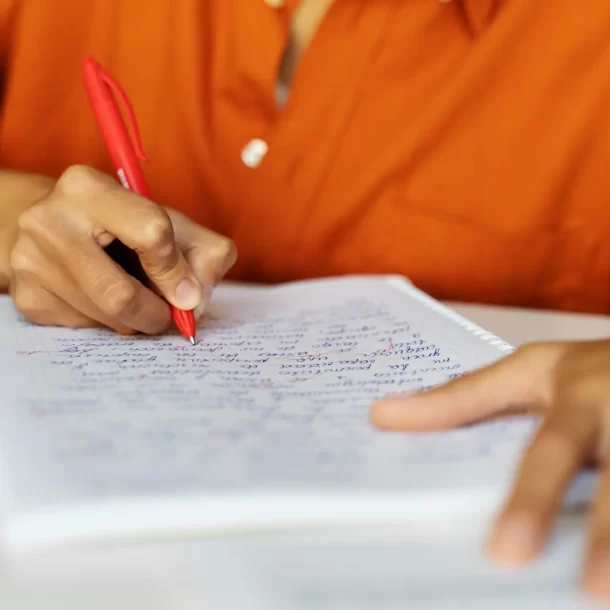
In some Quant questions, we are given big nasty numbers in the answer options and little else in the question stem. Often in such cases, the starting point is difficult for the test-taker to find, so today, we will discuss how to handle such questions.
The first and only rule with these types of problems is that familiarity helps. Evaluate the answer choices that make sense to you first.
Let’s look at a few questions to understand how to do that:
Question 1: Which of the following is NOT prime?
(A) 1,556,551
(B) 2,442,113
(C) 3,893,257
(D) 3,999,991
(E) 9,999,991
The first thing that comes to mind when we consider how to find prime numbers should be to “check the number for divisibility by all prime factors until we get to the
.” But note that here, we have four numbers that are prime and one number that is not. Also, the numbers are absolutely enormous and, hence, will be very difficult to work with. So, let’s slide down to a number that seems a bit more sane: 3,999,991 (it is very close to a number with lots of 0’s).
3,999,991 = 4,000,000 – 9
This is something we recognize! It’s a difference of squares, which can be written as:
Hence, we see that 3,999,991 is a product of two factors other than 1 and itself, so it is not a prime number. We have our answer! The answer is (D).
Let’s try another problem:
Question 2: Which of the following is a perfect square?
(A) 649
(B) 961
(C) 1,664
(D) 2,509
(E) 100,000
Here, start by looking at the answer choices. The first one that should stand out is option (E), 100,000, since multiples of 10 are always easy to handle. However, we have an odd number of zeroes here, so we know this cannot be a perfect square.
Next, we look at the answer choices that are close to the perfect squares that we intuitively know, such as ,
,
. The only possible number whose perfect square could be 961 is
will end with a 1 and will be a bit greater than 900 (
will end with a 4, so that cannot be the square root of 961, and the perfect squares of other greater numbers will be much greater than 900).
So, we found that 961 is a perfect square and is, hence, the answer!
In case 961 were not a perfect square, we would have tried 1,664 since it is just 64 greater than 1,600. It could be the perfect square of 42, as the perfect square of 42 will end in a 4.
If 1,664 were also not a perfect square (it is not), we would have looked at 2,509. We would have known immediately that 2,509 cannot be a perfect square because it is too close to 2,500. 2,509 ends in a 9, so we may have considered 53 to be its square root, but the difference between consecutive perfect squares increases as we get to greater numbers.
( is 16 while
is 25 – the difference between them is 9. The difference between
and
will be greater than 9, and so will the difference between the perfect squares of any pair of consecutive integers greater than 6. Hence, the difference between the squares of 50 and 53 certainly cannot be 9.)
Therefore, our answer is (B).
Let’s try one more question:
Question 3: When a certain perfect square is increased by 148, the result is another perfect square. What is the value of the original perfect square?
(A) 1,296
(B) 1,369
(C) 1,681
(D) 1,764
(E) 2,500
This question is, again, on perfect squares. We can use the same concepts here, too.
We know that the difference between consecutive squares increases as we go to greater numbers: going from to
is a difference of 61, while jumping from
to
is a difference of 81.
All the answer choices lie in the range from 900 to 2500. In this range, the difference between consecutive squares is between 60 and 100. So, when you add 148 to a perfect square to get another perfect square in this range, we can say that the numbers must be 2 apart, such as 33 and 35 or 42 and 44, etc. Also, the numbers must lie between 30 and 40 because twice 61 is 122 and twice 81 is 162 – 148 lies somewhere in between 122 and 162.
(A) and (B) are the only two possible options.
Consider option (A) – it ends in a 6, so the square root must end in a 6, too. If you add 148, then it will end with a 4 (the perfect square of a number ending in 8 will end in 4). So this answer choice works.
Consider option (B) – it ends in a 9, so the square root must end in a 3 or a 7. When you add 148, it ends in 7. No perfect square ends in 7, so this option is out. Our answer is, therefore, (A).
We hope you see how a close evaluation of the answer choices can help you solve questions of this type. Go get ’em!

Founder, sole curriculum creator and webinar instructor for ANA PREP, Karishma has been working in the test prep industry for almost 20 years now, of which 15+ are in GMAT exam preparation. She is an expert of Quant, Verbal and Data Insights and is known for her simple and elegant solutions. Her venture, ANA PREP, is one of the best GMAT online coaching platforms. Contact her at karishma@anaprep.com